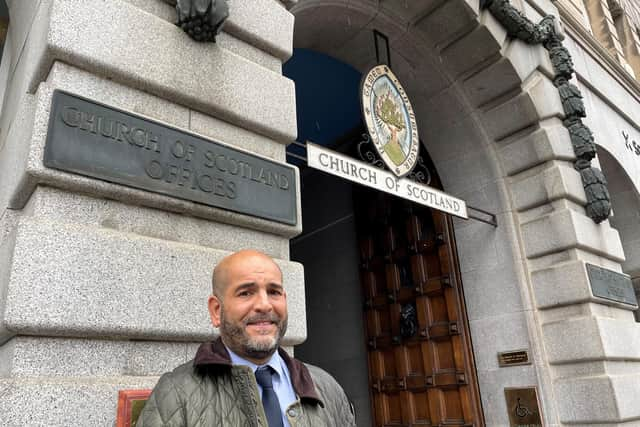Scotland's churches could risk going up in flames under new fire alarm policy, Kirk trustees say
Concerns have been raised that churches could be destroyed by fires if emergency crews follow a new policy under which they will no longer automatically attend alarms.
From Saturday, the Scottish Fire and Rescue Service (SFRS) will no longer travel to investigate all automatic alarms in a bid to cut the number of unnecessary callouts.
Advertisement
Hide AdAdvertisement
Hide AdThe General Trustees, the Kirk’s property holding arm, said they are worried that the directive could spark confusion among volunteers and increase costs and risk to properties during out-of-office hours, particularly in rural areas.


When an alarm is activated, those with fire safety responsibility within a building, known as the duty holder, will have to investigate and confirm there is a fire or sign of fire, and call 999 before control staff send any firefighters.
This new policy affects all church buildings, the Church offices, the General Assembly Hall, and the Scottish Storytelling Centre/John Knox House, which are all in Edinburgh.
Mo D’souli, health, safety, risk and compliance manager for the General Trustees, said there is particular concern for Church buildings of historical and national significance and ones in remote and rural areas.
He said: “We understand that the protection of life within occupied buildings is a priority and emergency procedures can be quickly activated by people on site in the event of an outbreak.
“However, we are concerned about the impact on buildings during out-of-hour periods when they are empty.
“All fire alarm activations are time critical whereby a small break out can quickly lead to a major incident and cause significant damage to property.
“There will no doubt be a high financial cost to the Church if we are to increase the level and sophistication of fire alarm systems and detector components in our most significant heritage buildings and provide additional resources and training to duty holders.
Advertisement
Hide AdAdvertisement
Hide Ad“It is also likely that increasing the time of a SFRS response could impact on the average cost of dealing with fires, particularly in large heritage buildings.
“This could reduce risk appetite amongst insurance companies for these properties and drive up costs in the long-term.”
Earlier this month, it was reported that firefighters were called out to more than 30,000 false alarms across Scotland last year, with assistant chief fire officer David Farries estimating the force could free up 64,000 hours each year for training and preventative work if crews stopped regularly attending false alarms.
SFRS Deputy Assistant Chief Officer Iain Macleod said the fire service had communicated with stakeholders about the need to change its response to automatic fire alarms and what the potential impact could be ahead of a 12-week public consultation that took place in 2021.
"We want to free up resources so that firefighters are available to attend real emergencies or undertake training and prevention activities in their local communities,” he said.
He said dutyholders must ensure they train staff and put in place suitable procedures to investigate the cause of any alarm activation to confirm if there is a fire or not, adding: “Firefighters will always respond to any reports of fire or signs of a fire.”
Comments
Want to join the conversation? Please or to comment on this article.
